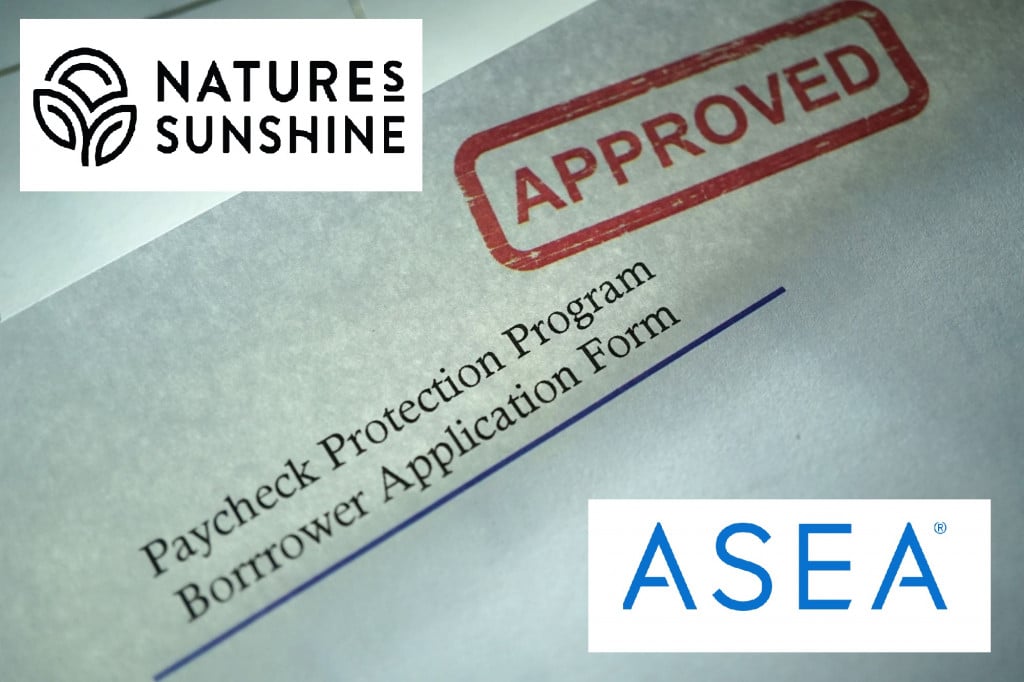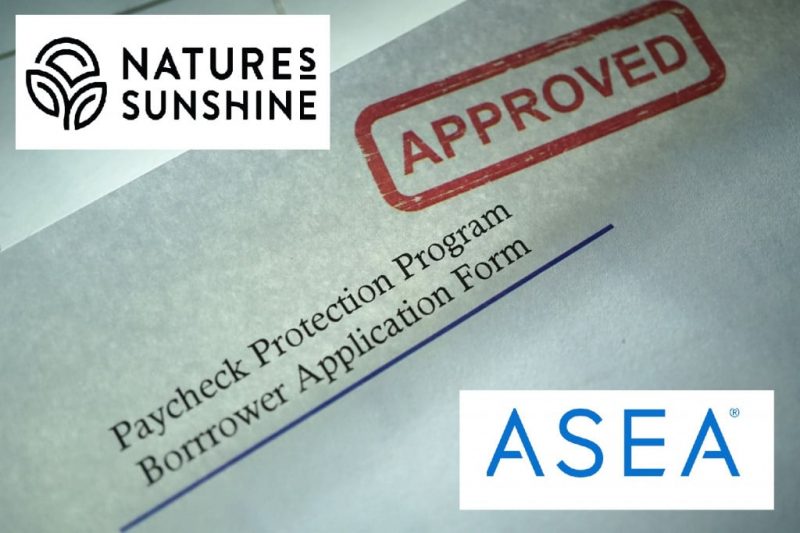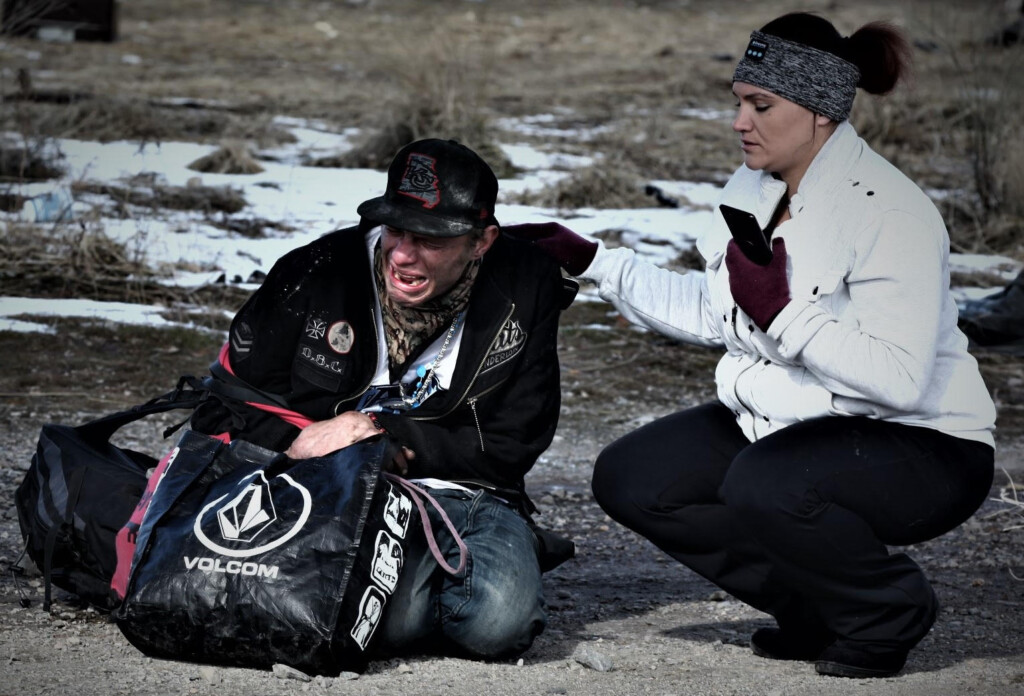
Utah multi-level marketing companies thrived during the pandemic, so why did they need PPP loans?
The following story was reported by The Utah Investigative Journalism Project in partnership with Utah Stories.
While many U.S. industries have gone under or struggled during the COVID-19 pandemic, many multilevel marketing businesses appear to be bounding through it without a scratch.
On May 26, 2021, the Direct Selling Association, representing predominantly multi-level marketers, proudly announced the industry not only survived the pandemic but profited handsomely through the global crisis with $40.1 billion in sales in 2020 — a 13.9% increase from the year prior.
“The results are clear,” the association press release announced. “A record breaking year and an unequivocal demonstration that direct selling is dedicated to serving America.”
Nevertheless, at least two prominent Utah multi-level marketing companies sought and received millions in government loans from the U.S. Paycheck Protection Program in early 2020.
When the Treasury Department began distributing $659 billion in PPP funds, the immediate goal was rapid relief, and so bureaucratic red tape was kept to a minimum. The program’s only major requirement was that the applicant check a box stating that “Current economic uncertainty makes this loan request necessary.”
Lehi-based Nature’s Sunshine Products, a publicly traded company distributing herbal supplements, received $5.3 million and ASEA Global, headquartered in Pleasant Grove, and also selling health supplements, landed a $5 million loan.
Given the bonanza crowed about by the industry at large, critics are skeptical of MLM companies’ legitimate need of government loans. Nature’s Sunshine Products released its third quarter earnings on Nov. 4, announcing that compared to the same period in 2020, the company’s net sales increased 14% to a record $114.7 million. In the statement, CEO Terrence Moorehead proclaimed “we delivered the largest sales quarter in the 49-year history of the company.”
‘Our Strong Balance Sheet’
When asked about seeking the loan, a spokesperson for Nature’s Sunshine Products referred to a statement from the company’s filings with the Securities and Exchange Commission.
“We applied to receive the Loan based on, among other considerations, the significant economic uncertainty facing the Company and its supply chain worldwide as a result of COVID-19. On December 28, 2020 we repaid the outstanding principal and interest amounts of Loan.”
While the company repaid the loan, the spokesperson did not specifically address why the company sought the loan when it had significant liquid assets — $53.6 million in cash and cash equivalent assets — on hand at the end of 2019.
While numerous industries are now struggling to deal with the pandemic’s impact on the global supply chain, Nature’s Sunshine’s CEO brags about its moves to avert similar problems. “We used our strong balance sheet to increase product availability and leveraged our in-house production capabilities to be more agile to customers’ needs,” Moorehead said in the company’s recent news release.
ASEA Global, is a private company and as such is not required to disclose company sales and growth metrics. The company also did not respond to multiple requests for comment for this story.
While ASEA would not explain why its $5 million loan was necessary, public records show the company appears to have come out of 2020 with enough funding to not only keep the lights on but to move forward with a major expansion to its Utah County facilities.
State construction records showed the company contracted for roofing work at the end of 2019, and in the same time period was cleared by local leaders to expand its corporate headquarters. A Pleasant Grove City community development document from March reported that ASEA was preparing to begin construction on its new four-story, 96,000-square-foot office building.
A few months later, on June 11, 2021, ASEA’s entire $5 million PPP loan was forgiven by the federal government, according to Treasury Department records.
‘Opportunistic Behavior’
Robert Fitzpatrick has been following the multilevel marketing industry for more than 20 years through the site PyramidSchemeAlert.org. He’s provided expert testimony in 45 court cases and is the author of Ponzinomics, a book chronicling the multilevel marketing industry’s history and evolution over the decades.
He notes that while it’s hard to get data from the private companies in the industry, there is a discernible pattern of these companies increasing sales during public health crises and times of economic uncertainty.
“MLMs do well when times are hard because they are selling something when there’s more demand for it — and I’m not talking about face cream, leggings or vitamin pills — I’m talking about hope for income or a need for income that becomes extremely acute during a recession,” he says.
It’s also the case that many multilevel marketing companies have been cited or warned about aggressive marketing practices during the COVID-19 pandemic. In 2020, the Federal Trade Commission warned 16 different MLMs about deceptive promises of their products being used to treat COVID-19.
Similar warnings go back even to the last pandemic, when the FTC warned operators of 10 websites in 2009 about making illegal health claims about their products’ ability to treat the H1N1 “Swine Flu” virus. One of those sites forced to take down misleading marketing was operated by a Nature’s Sunshine Products distributor.
Fitzpatrick is skeptical of the idea that the pandemic would be anything but an opportunity for a multilevel marketing company that already capitalizes on a work-from-home model.
“Global supply chains affect everyone but the pandemic furloughed jobs,” Fitzpatrick says. “It forced [employees] back home and this was the perfect environment for MLMs to flourish.”
William Keep, a marketing professor at the College of New Jersey who has extensively studied the industry, says if these sorts of companies abused the Paycheck Protection Program, it’s not really that surprising given the program’s rollout.
“When you push a lot of money out quickly, you’re going to find people engaging in opportunistic behavior, especially if there’s not a strong enforcement arm behind it, and the Paycheck Program Program did not have that,” Keep says.
What’s astounding to Keep is the MLM industry’s overall resiliency given so many studies showing only a tiny fraction of distributors ever make a profit from the supplements, oils, cosmetics and other products they try to sell to family, friends and neighbors.
“It seems almost unbelievable that a business model that purports to present a business opportunity thrives when what it largely provides is the opportunity to fail,” he says.
MORE ON UTAH’S MLM COMPANIES
Young Living Oils in hot water
The Essential Facts: An expert reveals the slippery science behind essential oils






